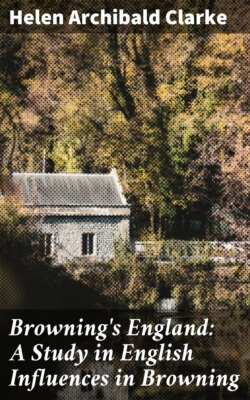Читать книгу Browning's England: A Study in English Influences in Browning - Helen Archibald Clarke - Страница 52
На сайте Литреса книга снята с продажи.
EURYDICE TO ORPHEUS
ОглавлениеTable of Contents
A PICTURE BY LEIGHTON
But give them me, the mouth, the eyes, the brow!
Let them once more absorb me! One look now
Will lap me round for ever, not to pass
Out of its light, though darkness lie beyond:
35 Hold me but safe again within the bond
Of one immortal look! All woe that was,
Forgotten, and all terror that may be,
Defied—no past is mine, no future: look at me!
Beautiful as these lines are, they do not impress me as fully interpreting Leighton's picture. The expression of Eurydice is rather one of unthinking confiding affection—as if she were really unconscious or ignorant of the danger; while that of Orpheus is one of passionate agony as he tries to hold her off.
Though English art could not fascinate the poet as Italian art did, for the fully sufficient reason that it does not stand for a great epoch of intellectual awakening, yet with what fair alchemy he has touched those few artists he has chosen to honor. Notwithstanding his avowed devotion to Italy, expressed in "De Gustibus," one cannot help feeling that in the poems mentioned in this chapter, there is that ecstasy of sympathy which goes only to the most potent influences in the formation of character. Something of what I mean is expressed in one of his latest poems, "Development." In this we certainly get a real peep at young Robert Browning, led by his wise father into the delights of Homer, by slow degrees, where all is truth at first, to36 end up with the devastating criticism of Wolf. In spite of it all the dream stays and is the reality. Nothing can obliterate the magic of a strong early enthusiasm, as "fact still held" "Spite of new Knowledge," in his "heart of hearts."
